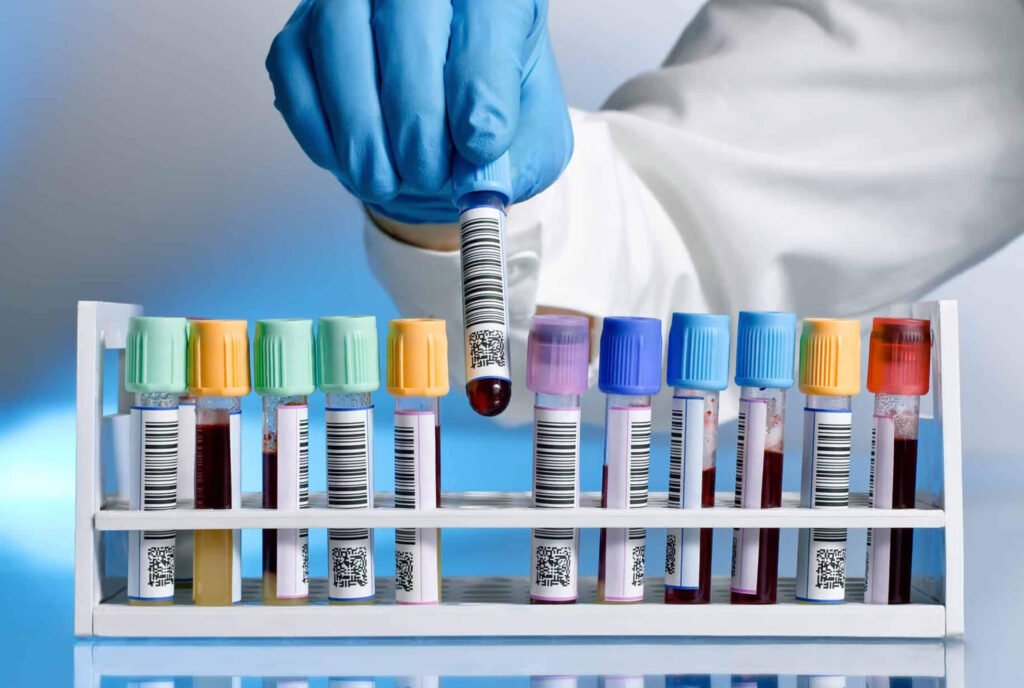Depression Treatment in Virginia – Compassionate Care at New Dawn Psychiatrist
Depression is a continuous darkness that affects every area of life, not only sadness. Getting out of bed can seem impossible when you have severe depressive disorder. The exhaustion, despair, and excitement for anything you previously loved can be all-consuming.
We at New Dawn Psychiatrist appreciate the weight of depression and are ready to help you lighten it. Should you be seeking depression treatment Virginia people trust, our practice provides evidence-based, sympathetic care aimed at assisting you in rediscovering happiness, meaning, and hope. You do not have to battle this alone; the New Dawn psychiatrist is your healing companion.

How does a Psychiatrist treat Depression at New Dawn?
Treatment of Depression by a Psychiatrist at New Dawn
Many individuals ponder how a psychiatrist addresses depression. New Dawn Psychiatrist answers using a thorough, personal approach that tackles both the biological and psychological components of depression.

Full Depression Assessment at New Dawn Psychiatrist
Your adventure with New Dawn Psychiatrist starts with a comprehensive psychiatric assessment, including:
- A thorough review of your symptoms and their length
- Review of family and medical history
- Evaluation of any previous mental health care
- Review of life situations and stress factors
- Screening for other illnesses that may co-exist with depression
Treatment Methods Based on Evidence
Management of medications: Moderate to severe depression can be rather well treated with antidepressant medicines. Our psychiatrists choose and keep track of drugs according to your particular symptoms and needs.
Depression Treatment Virginia:
Good depression treatment revolves around therapy. We provide or manage a range of therapeutic techniques, including cognitive behavioral therapy, interpersonal therapy, and supportive counseling.
Particularly for severe depressive disorder, studies consistently demonstrate better results from mixing medicine with psychotherapy than either method alone.


Depression Treatment Options at New Dawn Psychiatrist: Beyond Medication
Although medication is sometimes essential for controlling clinical depression, therapy in Virginia, comprehensive care at New Dawn Psychiatrist encompasses several modalities:
Methods in Virginia Used to Treat Depression
Cognitive Behavioral Therapy (CBT): It is useful in identifying and changing bad thinking habits that worsen depression. CBT equips one with effective skills on how to manage the symptoms of depression and prevent relapse.
Interpersonal Therapy – often called IPT
– targets how a person connects with others. Because mood struggles can shape interactions, reshaping those dynamics becomes central. Conversations shift when feelings run deep, so clarity often helps ease tension. Relationships sometimes worsen symptoms; at other times, they suffer because of them. Working through these loops allows space for change.
Interpersonal Therapy – often called IPT
– targets how a person connects with others. Because mood struggles can shape interactions, reshaping those dynamics becomes central. Conversations shift when feelings run deep, so clarity often helps ease tension. Relationships sometimes worsen symptoms; at other times, they suffer because of them. Working through these loops allows space for change.
Behavioral Activation:
When someone engages more with daily life, emotional patterns may slowly change. Instead of waiting to feel better before acting, progress happen when you take action. Doing meaningful activities – even without motivation – can alter how a person feels over time.
Mindfulness-based interventions
rain individuals to stay focused on the moment, so they gain better awareness of their thinking patterns and feelings. With practice, people learn to notice reactions without reacting immediately – this shift supports more balanced responses over time.
Our approach to treating depression symptoms includes three key treatment areas, which include the three essential components of our approach to treating depression symptoms.
- Sleep hygiene practices assist patients with depression in overcoming insomnia.
- Exercise recommendations are as effective as medication for mild to moderate depression.
- Nutritional advice to promote brain health
- Stress management techniques
How to Get Help for Depression in Virginia at New Dawn Psychiatrist
New Dawn Psychiatrist makes the procedure simple and inviting if you’re curious about how to seek treatment for depression in Virginia:
Step 1:
To set up a first meeting, get in touch with New Dawn Psychiatrist by phone, email, or via our website.
Step 2:
The evaluation process begins when you accompany our psychiatrist for evaluation.
Step 3:
Your treatment plan development processes The treatment plan development process starts when you provide your specific choice The treatment plan development process starts when you provide your specific choice.
Step 4:
The patient must start their selected treatment plan, which consists of either drugs or therapy or both.
Step 5:
The medical team conducts continuous patient assessments to evaluate treatment progress while adjusting medication as needed.

New Dawn Psychiatrist offers you the first step towards your healing process.
You can stop carrying the burden of depression because effective treatment exists. New Dawn Psychiatrist provides successful treatments that enable you to regain your lost energy, happiness, and optimism. Our professional team assists you from the beginning to the end, whether you require symptom assessment, antidepressant selection, or complete depression treatment in Virginia.
Contact New Dawn Psychiatrist today:
- Phone: 571-500-2110
- Mail: admin newdawnpsychiatrist.com
- Location: 16405 Regatta Ln Woodbridge, VA 22191
- Website: newdawnpsychiatrist.com
We accept most major insurance plans and offer flexible appointment options throughout Virginia. New Dawn Psychiatrist – bringing light back into your life.

What can I do to know whether I am sad or if I have clinical depression?
Normal grief is normally associated with specific events and is likely to improve with time. Clinical depression, the cause of which is not usually known, is long-term and can last weeks or months, seriously impairing its functionality. An assessment by a professional doctor is required in case you experience multiple symptoms of sadness for two weeks or more.
Are antidepressants going to change my personality?
Not quite. Medicines for depression ease the weight of low mood, bringing things closer to how they usually are. These pills don’t reshape who you are or force fake happiness into your days. If something feels off – like emotions seem distant or flat – talk it through with your doctor. That shift might mean adjusting how much you take or switching to another option entirely.
Stopping antidepressants might be an option once mood improves. A doctor’s guidance matters most here. Each situation moves at its own pace. Some find balance sooner, others need more time. The body signals what comes next. Patience shapes the path forward.
Do I have to continue taking medicines even after I get better?
Most times, staying on treatment for six to twelve months past symptom relief cuts down the chances of coming back. A doctor who knows your history can map out a timeline that fits just you, then shape a slow exit plan from meds when the moment feels right. Stopping isn’t sudden – it eases step by step.
I have already tried antidepressants without results. Now I’m wondering what comes next.
Some folks feel worse before things get better when starting an antidepressant. Just because one doesn’t fit right away doesn’t shut the door on finding relief later. It may just mean that your body reacts better to a different drug, a different dose, or in some cases, a combination of the two. It is not always easy to treat depression. It may take some time and some trial and error.
Does Virginia have insurance for depression therapy?
The majority of insurance covers mental health treatment, which includes counseling sessions and prescription coverage. The bulk of the primary insurance companies that we deal with could help you to verify your specific coverage.

